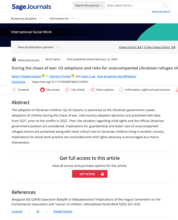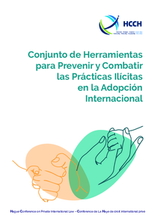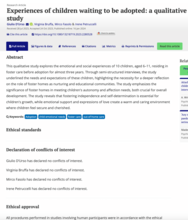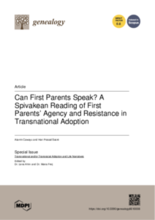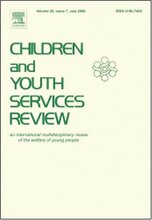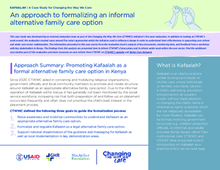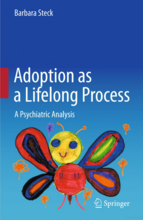Displaying 41 - 50 of 660
This article examines the adoption of Ukrainian children, by U.S. citizens as the Ukrainian government ceases adoptions of children during the chaos of war. Intercountry adoption dynamics are presented with data from 2021, prior to the conflict in 2022.
Amy and Ano are twins, but just after they were born they were taken from their mother and sold to separate families.They found out about each other by chance and as they delved into their past, they realised thousands of babies in Georgia were stolen from hospitals and sold for adoption, some as recently as 2005. Now they want answers.
Este Conjunto de Herramientas está compuesto de las herramientas enumeradas a continuación, que pueden ser leídas de manera independiente o conjunta.
This qualitative study explores the emotional and social experiences of 10 children, aged 6–11, residing in foster care in Italy before adoption for almost three years. Through semi-structured interviews, the study underlined the needs and expectations of these children, highlighting the necessity for a deeper reflection on the role of foster homes as nurturing and educational communities.
This article analyses the search strategies of first families in Bolivia contesting the separation of their children through transnational adoption. These first parents’ claims to visibility and acknowledgement have remained largely ignored by adoption policy and scholarship, historically privileging the perspectives of actors in adoptive countries, such as adoptive parents and adoption professionals.
This is a systematic review of literature published from 2002 to 2022 to assess the differences in outcomes of children and youth who were adopted out of foster care compared to children and youth in foster care (CYFC) who were in other permanency placements (reunified, aged out, long-term foster care). The review yielded twelve (N = 12) studies from Sweden, the United Kingdom, and the United States.
This case study, developed by an external evaluation team as part of the Changing the Way We Care (CTWWC) initiative’s five-year evaluation, examines efforts in Kenya to promote and formalize Kafaalah as a recognized alternative family care option.
This data collection exercise was commissioned to assess the different types of Kafaalah care arrangements practiced by families and communities in Kilifi, Kenya. It affirms that Kafaalah is a widely known and practiced form of care among the Muslim community in Kilifi County.
These illustrations from Changing the Way We Care and the Government of Kenya showcase live community engagement sessions on how to develop Kafaalah messages and promote Kafaalah for family-based care.
This book addresses the psychosocial complexities of adoption from multiple perspectives, including the biological family, adopted child, and adoptive parents. It highlights the must-have sensitivity and tactfulness for recurring discussions of the adoption situation.

